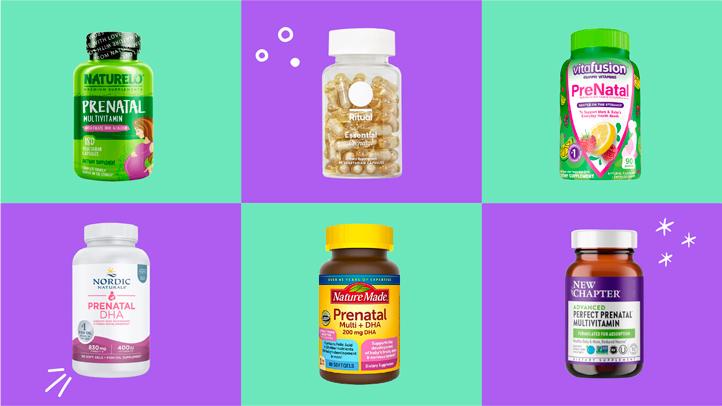Factors Affecting Routine Immunization In Nigeria – Routine immunization is a vital component of Nigeria’s healthcare system, aimed at protecting children and adults from preventable diseases. Nigeria has made significant progress in increasing immunization coverage, but there are still challenges to be addressed. The Nigeria National Primary Health Care Development Agency (NPHCDA) and partners, including the World Health Organization (WHO) and UNICEF, work together to implement immunization programs and improve access to vaccines. They also strive to increase public awareness and understanding of the importance of routine immunization in Nigeria.Factors Affecting Routine Immunization In Nigeria
Read Also: 10 Factors Affecting Rice Production in Nigeria
What is Routine Immunization?
Routine immunization is the ongoing administration of vaccines to individuals, according to an established schedule, to prevent the spread of certain infectious diseases. This typically includes administering vaccines to infants and young children, but can also include adults who are at risk for certain illnesses. The goal of routine immunization is to create herd immunity, which occurs when a high enough percentage of a population is immune to a disease, making it difficult for the disease to spread.
Types of Routine Immunization
Several types of routine immunizations are recommended for different age groups. These include:
- Infant Immunizations: These are recommended for infants starting at birth and include vaccinations for diseases such as measles, mumps, rubella, polio, diphtheria, tetanus, pertussis, Haemophilus influenzae type b, and pneumococcal disease.
- Childhood Immunizations: These are recommended for children between the ages of 2 and 12, and include vaccinations for diseases such as measles, mumps, rubella, chickenpox, and meningococcal disease.
- Adolescent Immunizations: These are recommended for teenagers and include vaccinations for diseases such as human papillomavirus (HPV), meningococcal disease, and pertussis.
- Adult Immunizations: These are recommended for adults and include vaccinations for diseases such as influenza, tetanus, diphtheria, pertussis, pneumonia, and shingles.
It is important to consult with your healthcare provider to know which vaccines are recommended for you and your family based on your circumstances, such as your age, health conditions, and travel plans.
Read Also: 10 Factors That Influence The Level of Investment in Nigeria.
Advantages of Routine Immunization in Nigeria
Routine immunization in Nigeria has several advantages, including:
- Protection against Infectious Diseases: Routine immunization protects individuals and communities against a variety of infectious diseases, such as measles, polio, and tetanus.
- Reduction in Morbidity and Mortality: Routine immunization can significantly reduce the incidence of disease and death from vaccine-preventable illnesses.
- Cost-effective: Routine immunization is a cost-effective way to protect individuals and communities from infectious diseases.
4 Herd Immunity: When a sufficient proportion of a population is immunized, it can create herd immunity, which can protect vulnerable individuals who cannot be vaccinated, such as infants and people with certain medical conditions.
- Contribution to Global Health: Routine immunization in Nigeria can help to control the spread of infectious diseases not only within the country but also in the region and beyond, contributing to global health.
- Long-term Health Benefits: Routine immunization can provide long-term health benefits, such as reducing the need for medical care, improving productivity, and increasing life expectancy. Information Guide Nigeria
Read Also: 10 Factors Affecting Voting Behaviour In Nigeria
List of Places where Routine Immunization can be done in Nigeria
In Nigeria, routine immunization is typically done in the following places:
- Primary Health Care (PHC) Centers: These centers are usually located in the community and provide basic health services, including routine immunization.
- Local Government Area (LGA) Health Centers: These centers are located in each LGA and provide more comprehensive health services, including routine immunization.
- Hospitals: Some hospitals also provide routine immunization services, particularly for children and pregnant women.
- Mobile Clinics: Nigeria has mobile clinics that go to remote areas where access to health facilities is limited. These clinics also provide routine immunization services.Romantic Love Messages
- Private Clinics and Hospitals: Some private clinics and hospitals also provide routine immunization services, although this may come at a cost.
- Outreach Services: The government of Nigeria also conducts outreach services that provide routine immunization services to hard-to-reach communities, such as nomadic or rural populations.
Read Also: 10 Factors Affecting Vegetation In Nigeria
Factors affecting Routine Immunization in Nigeria
Several factors affect routine immunization in Nigeria, including:
- Lack of Access to Healthcare: Many rural and underserved areas in Nigeria have limited access to healthcare facilities, making it hard for individuals to receive routine immunizations. NYSC Portal
- Socioeconomic Status: Poverty and lack of education simply make it difficult for individuals to understand the importance of routine immunizations and access them.
- Misinformation and Mistrust: Misinformation about the safety and efficacy of vaccines, as well as mistrust of the healthcare system, can lead to low vaccination rates.
- Poor Infrastructure and Logistics: Nigeria’s healthcare infrastructure and logistics system is often inadequate, making it difficult to deliver vaccines to those in need. JAMB Portal
- Limited Availability of Vaccines: There is often limited availability of vaccines in Nigeria, especially in rural areas as it makes it hard for individuals to receive routine immunizations.
- Religious and Cultural Beliefs: Certain religious and cultural beliefs may discourage or prohibit individuals from receiving routine immunizations.
- Conflict and Displacement: Conflict and displacement disrupt healthcare systems and make it difficult for individuals to receive routine immunizations.
- Vaccine Hesitancy: Vaccine hesitancy or reluctance to receive vaccines is caused by factors such as misinformation, lack of trust in healthcare providers, or religious or cultural beliefs.
- Funding and Resources: Limited funding and resources can make it difficult to provide routine immunizations to individuals in Nigeria.
- Political Instability: Political instability disrupts healthcare systems and makes it difficult to deliver vaccines and other healthcare services to individuals in Nigeria.Good Morning Love Message
Read Also: 10 Factors Impacting the Education of Girls
Conclusion
In this article, I examined the factors affecting routine immunization in Nigeria. Routine immunization is an important tool in preventing the spread of infectious diseases in Nigeria. Despite challenges such as limited access to healthcare in rural areas and cultural barriers, the Nigerian government has made significant efforts to increase the coverage of routine immunization in the country.
However, there is still room for improvement, particularly in terms of increasing access to vaccines in underserved areas and addressing mistrust of vaccines in some communities. Overall, continuing to prioritize and invest in routine immunization is crucial for protecting the health of the Nigerian population.
Check JAMB RESULT
Check and Confirm: How much is Dollar to Naira





